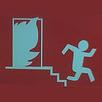|
Larry Mahnken and SG's | ||
|
| Replacement Level Yankees Weblog |

|
|
"Hey, it's free!" | ||
|
|
|
Larry Mahnken and SG's | ||
|
| Replacement Level Yankees Weblog |

|
|
"Hey, it's free!" | ||
|
|
|
Featuring: Larry Mahnken SG sjohnny TVerik Sean McNally Fabian McNally John Brattain This is an awesome FREE site, where you can win money and gift certificates with no skill involved! If you're bored, I HIGHLY recommend checking it out!
 
The New York Yankees Vintage World Series Films DVD Set, available from A&E. Yankees Tickets World Series Tickets MLB All Star Tickets NFL Tickets Purchase your Onlineseats.com is your #1 source for MLB tickets, NY Mets Tickets, Cubs Tickets, Yankees Tickets, Red Sox Tickets, Giants Tickets, Astros Tickets, Angels Tickets, Phillies Tickets.
Buy all your MLB Tickets,
Laser Keyboard Brazil Flowers TickCo.com for premium New York Yankees Tickets Boston Red Sox Tickets Chicago white Sox Tickets A's Tickets Angels Tickets New York Mets Tickets St Louis Cardinals Tickets Cubs Tickets Dodgers Tickets "I'm not a pessimist, I'm an optimist. Things are really worse than I say they are." - Steve South

January 2001 April 2003 May 2003 June 2003 July 2003 August 2003 September 2003 October 2003 November 2003 December 2003 January 2004 February 2004 March 2004 April 2004 May 2004 June 2004 July 2004 August 2004 September 2004 October 2004 November 2004 December 2004 January 2005 February 2005 March 2005 April 2005 May 2005 June 2005 July 2005 August 2005 September 2005 October 2005 November 2005 December 2005 January 2006 February 2006 March 2006 April 2006 May 2006 June 2006 July 2006 August 2006 September 2006 October 2006 November 2006 December 2006 January 2007 February 2007 March 2007 April 2007 May 2007 LINKS Yankees Sites and Columnists Nomaas.org General Baseball Sites & Columnists At Home Plate Rotoauthority.com The Book Blog - Playing the Percentages in Baseball(Tango, MGL, Dolphin) Yankees Blogs Almost Perfect Baby Bombers Baseball Mania Bronx Banter Bugs and Cranks Canyon of Heroes Dugout News Eephus Pitch Here Comes Number 27 High and Tight Lohud Yankees Blog No Sense Worrying Pinstripe Potentials River Ave. Blues Soft Hands The Stat Boy of the Empire Was Watching Yankees Chick Yankees Fans in Foreign Lands Yanks Blog Other Team Blogs Anaheim Angels All the Way Bucco Blog San Francisco Giants Blog Viva El Birdos Look what people have to say about Larry Mahnken's commentary! "Larry, can you be any more of a Yankee apologist?.... Just look past your Yankee myopia and try some objectivity." "Mr. Mahnken is enlightened."
"Wow, Larry. You've produced 25% of the comments on this thread and
said nothing meaningful. That's impressive, even for you."
"After reading all your postings and daily weblog...I believe you have truly become the Phil Pepe of this generation. Now this is not necessarily a good thing."
"you blog sucks, it reeds as it was written by the queer son of mike lupica and roids clemens. i could write a better column by letting a monkey fuk a typewriter. i dont need no 181 million dollar team to write a blog fukkk the spankeees"
"i think his followers have a different sexual preference than most men"
"Boring and predictable."
"Are you the biggest idiot ever?"
"I'm not qualified to write for online media, let alone mainstream
media."
This site is best viewed with a monitor.
|
Disclaimer: If you think this is the official website of the New York Yankees, you're an idiot. Go away. August 31, 2003
by Larry Mahnken
When you're in first place by 3½ games, there's no such thing as a must-win, but yesterday's win was important nonetheless. The Red Sox no longer control their own destiny, and even if they win the remaining games they have against the Yankees, they still need help from someone else to make the playoffs. It also puts them in a position where they almost have to win today's game, otherwise facing the alternative of having to sweep the Yankees next weekend in the Bronx, which seems very unlikely.
August 30, 2003
by Larry Mahnken
For the third time in four games, the Yankees' pitching got torched, and this time it was at the hands of the Red Sox, which makes it twice as damaging.
August 29, 2003
by Larry Mahnken
And so, once again, it comes down to the Yankees and the Red Sox. These two teams have finished 1-2 five years in a row, about to be six. In the history of this rivarly, this has been the longest stretch of mutual competitiveness these two team have had. The Yankees have finished on top five years in a row, and enter this weekend's matchup 4½ game in front.
August 28, 2003
by Larry Mahnken
Now don't get me wrong, I'm just as pissed off about the last two games as any of you, but lets not blow this out of proportion again. They got smacked around in two straight by the Red Sox at home on Fourth of July Weekend (with Rocket and Boomer going in those two, as well), and they did just fine after that. They got crushed by the White Sox at home in 2000, and won the World Series. Two blowout losses in front of your home crowd in late August is certainly a frustrating experience, but it doesn't mean that the Yankees are doomed. (*Smashes chair*) There. I got that out of my system...
August 27, 2003
by Larry Mahnken
A big loss always feels worse than a run-of-the-mill 5-3 loss, like it counts double. But tonight's loss didn't really expose the Yankees in any way, and it doesn't mean very much about the next two games. Roger Clemens threw a few pitches in bad spots at bad times to good hitters and paid for it. He's just as likely to shut the White Sox out the next time around.
August 26, 2003
by Larry Mahnken
Reader Mail
August 25, 2003
by Larry Mahnken
There's a reason I wasn't ready to declare the pennant race over last week--because it isn't over. The Red Sox fell 7½ back because they had played so miserably against the Orioles going into a tough stretch, and while 5 games back isn't quite close enough to say they're right back in the thick of things, they were able to keep from falling out of playoff contention by playing fantastic ball against excellent teams. In fact, Boston ended the stretch from hell with exactly the record projected, 8-6, and the Yankees have to beat Baltimore tonight to meet their projection, and gain the two games in the standings that they should have been expected to.
August 24, 2003
by Larry Mahnken
Beyond The Box Score by Art Martone: Here's a few more out-of-site diamond sites -- even for Yankee fans
by Larry Mahnken
Yesterday, the Yankees retired Ron Guidry's #49, making it the 16th number to have been retired by the Yankees.
August 23, 2003
by Larry Mahnken
Ailing Wells can't lift Yankees in loss (North Jersey Media Group)
by Larry Mahnken
Clueless Joe
August 22, 2003
by Larry Mahnken
El Titan de Bronze makes his return to the Bronx Sunday in a start against the Baltimore Orioles, replacing El Enano de Papel de Estaño in the rotation. Weaver was diplomatic about the move, telling reporters, "Oh man, I have no idea what's going on."
August 21, 2003
by Larry Mahnken
I'm not gonna do it. Not yet. 7½ up, 8 in the loss column. But I'm gonna be one of the last people to say it.
August 20, 2003
by Larry Mahnken
Because the New York Yankees franchise has had such a ridiculous amount of success in the past, and particularly because they've been so successful in the past decade, the Yankees are held to a higher standard. 2001 was a bad year, 2002 a humiliation. Winning is not good enough in and of itself, to recieve credit in New York, you have to win titles. It's not fair, but that's the way it is.
August 19, 2003
by Larry Mahnken
I've said this before: I don't read other peoples' weblogs very often, because I usually end up thinking about whatever they wrote when I try to write my stuff, and I really don't want to plagerize anyone else. Of course, I do have a few regular blogs that I always visit when I do read other people, and one of these is Mike's Baseball Rants. If it was just for his brilliant, and usually hilarious breakdowns of Joe Morgan chats, Mike's blog would be a must-read, but Mike's analysis and writing is worth the trip, as well.
by Larry Mahnken
The Yankees trounced the Royals last night, extending their lead in the AL East to 5½ games over the Red Sox, 6 in the loss column. Don't look now, but the AL East race might soon be over.
August 18, 2003
by Larry Mahnken
What a bizzare weekend. On Friday, Aaron Boone hit a three-run home run to win the game, and on Saturday, Jack Cust fell down on the way to an unguarded home plate to end the game. Today, the weekend was capped with the most bizzare thing of all: Alfonso Soriano walked. Unintentionally. It boggles the mind.
August 17, 2003
by Larry Mahnken
Friday night, the Yankees won the game in bizzare fashion, with slumping third baseman Aaron Boone hitting a three-run home run in the top of the ninth to erase a 3-2 deficit, and ultimately give the Yankees the win. This result was so unbelievable that I could only respond with a "tall tale", which unexpectedly earned me a Clutch Hit, perhaps the most bizzare result of the night.
August 16, 2003
by Larry Mahnken
Many years from now, when I'm old and gray and bald...er, my grandchildren will gather around my feet.
August 15, 2003
by Larry Mahnken
For the past few weeks, I've harped on the fact that the Red Sox are, right now, entering "The Stretch From Hell". While the Yankees aren't playing particularly easy competition, the Red Sox are playing exceptionally good opponents over the next two weeks, Seattle and Oakland. By entering this stretch three games behind the Yankees, it seemed that the Red Sox were on the ropes. If things went like I expected them to, they might be out of contention in two weeks. But things don't always happen like you expect them to, and sometimes, what you expect happen isn't what you should.
| ||||||||||